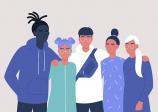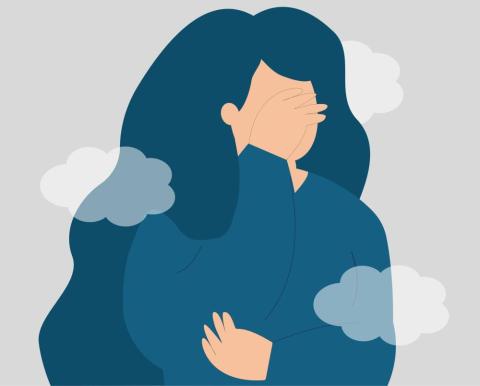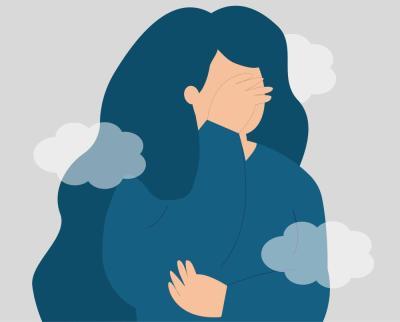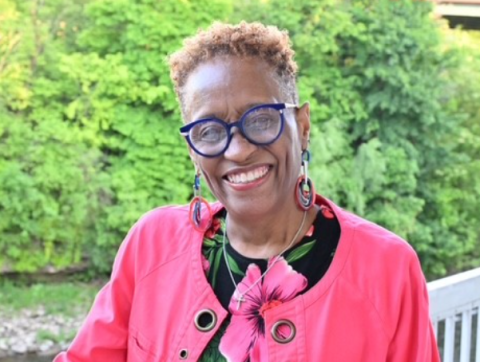BIPOC/Minority Mental Health Needs More Diverse Care Professionals - How ADAA is Helping to Create Equality
BIPOC/Minority Mental Health Needs More Diverse Care Professionals - How ADAA is Helping to Create Equality
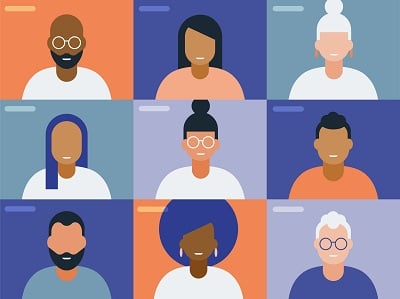
If you took a balance scale and put the current percentage of BIPOC (Black, Indigenous, People of Color) mental health professionals in the United States on one weighing pan and the percentage of BIPOC or other minority groups in need of mental health care on the other weighing pan, the balance would be far from even. Tipping far below would be BIPOC and other minorities with mental health disorders, whether they are receiving treatment or not.
Almost 75 percent of mental health professionals in the US today are white (source). That leaves roughly 25 percent as non-white, whether they identify as Black, Indigenous, persons of color or some other race or ethnicity. Suffice it to say, the side of the scale with the minority mental health professionals needs some weighing down. But how, when, and why does the mental health field need to increase its diversity when it comes to care professionals?
Trust, Connection and Other Reasons for Diversity
ADAA member Bernadine Waller, PhD, LMHC, along with her colleagues in an NIH research paper, aptly titled Should We Trust You?, wrote, “the underrepresentation of BIPOC mental health professionals adversely affects mental health help-seeking” in these communities, and stated in the report that, “without options for providers who share cultural, linguistic, and other intersectional identifiers that could provide culturally humble and competent care, BIPOC are likely to remain distrustful.”
Distrust. It’s one of the main reasons why a lot of BIPOC and people of other minority groups do not seek mental health care. We know already that many people from these communities have difficulty finding, affording, and receiving treatment. Trust (or rather mistrust) is one factor, but others like stigma, racism, discrimination, language and/or cultural differences, as well as socioeconomic barriers, also keep them at bay.
It makes sense that someone of a particular race or culture might feel more comfortable, trustful, and would connect better with someone of their own community but with a shortage of mental health providers that look like them, understand them, and share some of their same experiences, what can we do? (read 5 Meaningful Ways to Embrace Black Mental Health)
ADAA’s BIPOC Focus Works to Help Fill the Void
The importance of not just increasing the numbers of BIPOC and minority mental health care experts but giving them a professional community has not gone unaddressed at ADAA. Our commitment to diversity, equity, and inclusion is imbedded in our mission and our DEI statement encompasses our core organizational values. We encourage integrating cultural competency into mental health care training for all providers and emphasize education for all of our members and professional community through our webinars and conference sessions.
ADAA understands how essential it is for all mental health professionals to provide the best care available and the importance of increased education, but we need to continue to create safe spaces for minority providers. With programs that include scholarships, awards, mentorships, and continuing education, ADAA offers early career and young BIPOC and minority mental health professionals opportunities to meet and network with each other.
Through this engagement, says Cecilia Hinojosa, PhD, a 2022 ADAA BIPOC Membership Scholarship recipient, “the door to networking with others who received the award was opened” and it introduced her to other BIPOC and minority mental health professionals she would have otherwise not had a chance to meet.
“Since receiving the BIPOC award, I joined two ADAA SIGs (Special Interest Groups) and have had more opportunities to enhance my leadership skills,” said Dr. Hinojosa who identifies as a cis-gender Mexican-American woman.
More BIPOC Leaders Leads to More BIPOC Engagement
Enhancing and supporting leadership in the BIPOC and minority mental health professional community is a crucial part of ADAA’s work. As more and more BIPOC and minority mental health professionals take on leadership roles, ADAA envisions two things:
- More BIPOC and minority students will be encouraged and also be afforded opportunities to pursue mental health degrees
- More people from BIPOC and minority communities will be able and want to receive care and treatment from BIPOC and minority mental health professionals
Darius Dawson, PhD, says he applied for the ADAA BIPOC award because it was a great opportunity to expose himself to anxiety research while networking with other BIPOC peers.
“It was important to connect with other BIPOC peers, which is very rare in this field,” Dr. Dawson, a Black cis-gender man, said, stressing how his ADAA membership has helped him.
“I haven’t felt a sense of belonging like I’ve felt as an ADAA member,” he explained. “A lot of organizations don’t ask new members or early career professionals to be a part of their growth.”
Growing the next generation of BIPOC and minority mental health professionals is vital to addressing the mental health care disparities in BIPOC and minority communities. ADAA is excited to be a part of working to help balance the mental health equity scale.
Learn more about ADAA’s BIPOC content, scholarship winners, Special Interest Groups (SIGs), and the 2024 annual conference in Boston.




